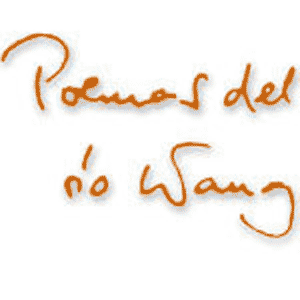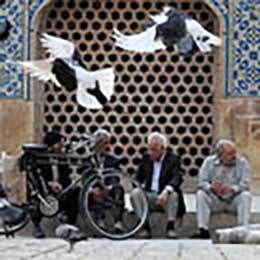
What happened then is unclear. Petőfi’s body was not identified among the dead. A hopeful myth was born and spread that he was taken prisoner by the Russians, he was brought to Siberia where he founded a village of exiles, he seduced the daughter of a Russian general, or he worked in a mine “but everyone knew who he was, because on his hat he had a national color ribbon, and on it was written «Alexander Petrovich»…”

Alexander Petrovich was long dead when Sándor Petőfi arrived to Russia. This happened in 1939, and it was the future Nobel-winner poet Boris Pasternak to introduce him in the Russian literary life which enthusiastically endorsed him. A. Pozdnyakov describes it like this in his study on Pasternak’s translations (2010):
“As to Hungarian poetry, Pasternak translated almost four thousand verses from the oeuvre of Sándor Petőfi. He met the works of the Hungarian poet in 1939 for the first time, and then he translated the poem “At the end of September”, so often quoted in the anthologies, originally written only ten months before the poet died on the battlefield of Segesvár. Pasternak said that already this first encounter with Petőfi’s poetry elicited lively interest in him. “First I was cold to it, but soon I discovered something in it which was close to me and which warmed me. I had been interested in Lenau, I was under his influence, and this Hungarian somehow reminded me of Lenau, of Franz Liszt and others, perhaps through the common origin and culture, I don’t know, but in any case it was a pleasure getting to know him. I have collected the best of my translations of his poems overt the last years, and here I publish them” – he wrote in the postscript to his selected translations in 1991. His first translations from Petőfi appeared in his Selected Translations in 1940.”

It does matter who translates a poet for the first time to a certain language. The genius of Pasternak has certainly contributed to the Russian readers’ feeling Petőfi their own. We wanted to include here a Russian performance of “At the end of September” as an illustration, but we were unable to find it on the Russian net (if anyone knows a source, we’d appreciate it). The poem “If you’re a flower” is the only one among the translations of Pasternak of which we have an audio version. (When re-reading it in the light of the anniversary, one cannot avoid noticing how the last, blasphemous verse tallies with the name of the Saxon village where he was seen for the last time.)
Petőfi: Если ты цветок…
| Fa leszek, ha fának vagy virága. Ha harmat vagy: én virág leszek. Harmat leszek, ha te napsugár vagy Csak hogy lényink egyesüljenek. Ha, leányka, te vagy a mennyország: Akkor én csillagá változom. Ha, leányka, te vagy a pokol: (hogy Egyesüljünk) én elkárhozom. | Если ты цветок — я буду стеблем, Если ты роса — цветами ввысь Потянусь, росинками колеблем, — Только души наши бы слились. Если ты, души моей отрада, Высь небес — я превращусь в звезду. Если ж ты, мой ангел, бездна ада — Согрешу и в бездну попаду. | I’ll be a tree, if you are its flowers, Or a flower, if you are the dew; I’ll be the dew, if you are the sunbeam, Only to be united with you. My little girl, if you are the heaven I shall be a star above on high; My little girl, if you are hell-fire, To unite us, damned I shall die. |

One of the most popular Russian editions of Petőfi’s selected poems was published in 1969 in Moscow at the Художественная Литература publisher, with the pictures of the well known illustrator trio G. A. V. Traugot. We found long ago a scanned version of the book on the Russian net, and we thought we would publish sometimes the touching recommendation that accompanied the scanned book. Today is the best time for it.
“Each of us has a favorite poet, sometimes more than one. And often there is a poet whom you carry with yourself through all your life, you never forget him, and have a special feeling towards him, like the person nearest and dearest to you. At times you do not notice that you compare many of your actions, thoughts and even some critical periods of your life to these poems and their creator. Has it never happened to you? To me it has. I met this volume at the time when it was published, back in the far away 1969, when I was a little more than twenty year old. I fell in love with these poems, and later with their author, on whom I have read everything published in Russian. There were periods when I did not open this book for years, but I have never forgotten about him and his poems. All that is in this volume I know by heart… After a long delay I decided to scan and publish this book, so dear to me – precisely this one, although I also have his complete poetry in my library. I don’t know why I waited for so long. Perhaps I was afraid that someone might find ridiculous my attachment to this poet, or that this poetry will not appear fashionable any more. But now it is finally online, and I also decided to scan and publish in the near future the great book written on him by the outstanding Hungarian author Gyula Illyés. And notice also the names of the translators: Boris Pasternak, Leonid Martinov, Vilhelm Levik, Nikolai Chukovsky, Vera Inber, Nikolai Tikhonov.”
Petőfi certainly did not die in Russia.




























































































































































Add comment